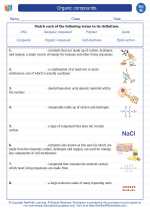Lysosomes
Lysosomes are membrane-bound organelles found in the cytoplasm of eukaryotic cells. They are known as the "garbage disposal" or "recycling center" of the cell because they contain digestive enzymes that break down waste materials, cellular debris, and foreign invaders such as bacteria and viruses. Lysosomes play a crucial role in maintaining the overall health and function of the cell.
Structure of Lysosomes
Lysosomes are small, spherical organelles enclosed by a single membrane. The interior of the lysosome is acidic, which is necessary for the optimal activity of the hydrolytic enzymes contained within. These enzymes are synthesized in the endoplasmic reticulum and then transported to the lysosomes, where they are processed and activated.
Functions of Lysosomes
Lysosomes carry out several important functions within the cell, including:
- Waste Digestion: Lysosomes break down and digest cellular waste materials, such as worn-out organelles, through a process called autophagy.
- Cellular Recycling: Lysosomes recycle the components of damaged organelles and macromolecules, allowing the cell to reuse the raw materials for the synthesis of new molecules.
- Defense Against Pathogens: Lysosomes participate in the destruction of engulfed bacteria, viruses, and other foreign particles through a process called phagocytosis.
- Programmed Cell Death: Lysosomes are involved in initiating and executing a controlled process of cell destruction known as apoptosis, which is essential for removing damaged or unwanted cells.
Disorders Related to Lysosomes
Defects in lysosomal function can lead to a group of disorders known as lysosomal storage diseases. These conditions are caused by the deficiency of specific lysosomal enzymes, resulting in the accumulation of undigested substrates within the lysosomes. Examples of lysosomal storage diseases include Tay-Sachs disease, Gaucher's disease, and Pompe disease.
Study Guide:
When studying lysosomes, consider the following key points:
- Structure and composition of lysosomes
- Functions of lysosomes in waste digestion, cellular recycling, defense against pathogens, and programmed cell death
- Role of lysosomes in maintaining cellular homeostasis
- Understanding lysosomal storage diseases and their impact on cellular function
- Importance of maintaining lysosomal function for overall cell health
By understanding the structure and function of lysosomes, you will gain insight into the critical role these organelles play in maintaining the health and function of eukaryotic cells.
.◂Science Worksheets and Study Guides Eighth Grade. Organic compounds

 Worksheet/Answer key
Worksheet/Answer key
 Worksheet/Answer key
Worksheet/Answer key
 Worksheet/Answer key
Worksheet/Answer key
 Vocabulary/Answer key
Vocabulary/Answer key
 Vocabulary/Answer key
Vocabulary/Answer key
